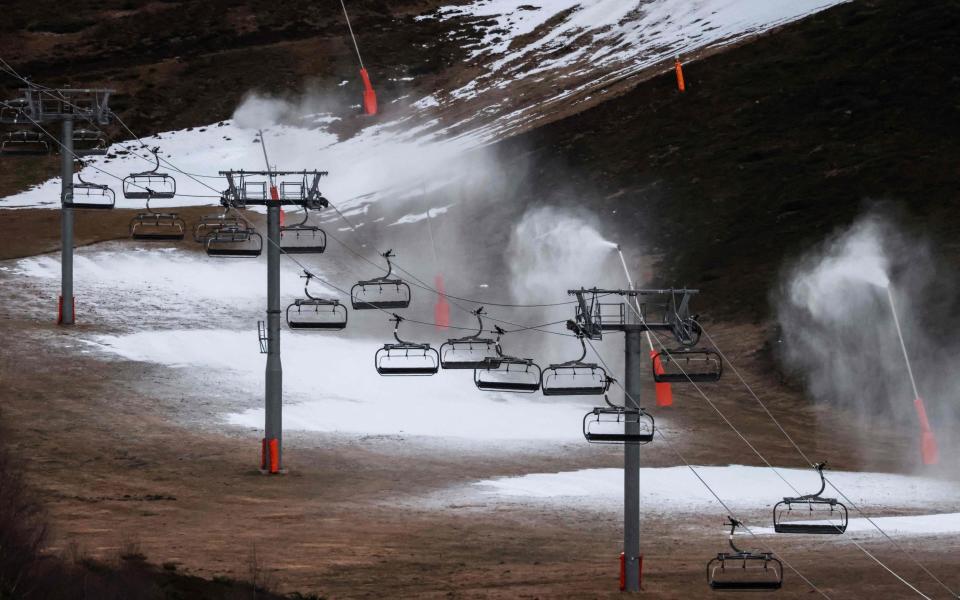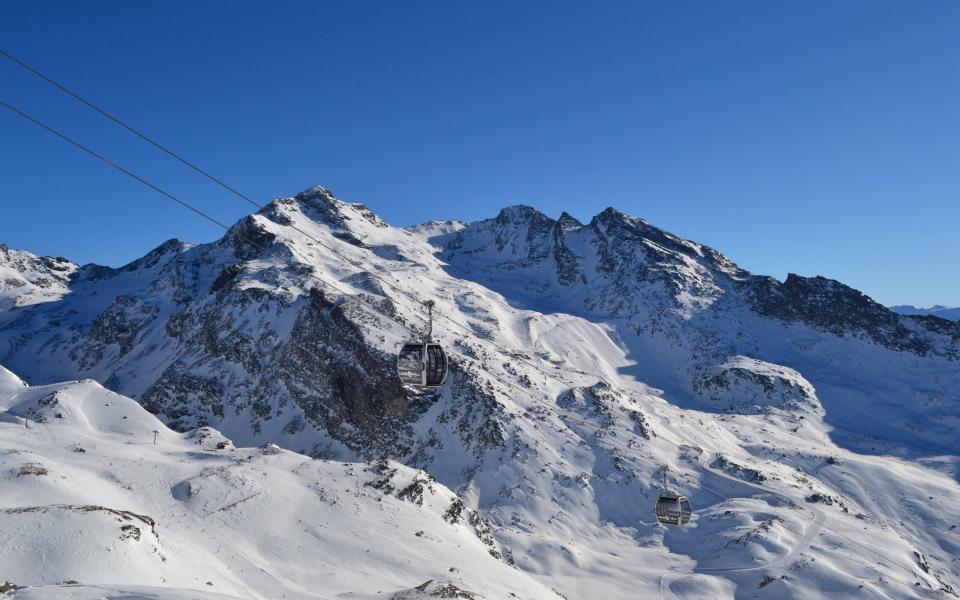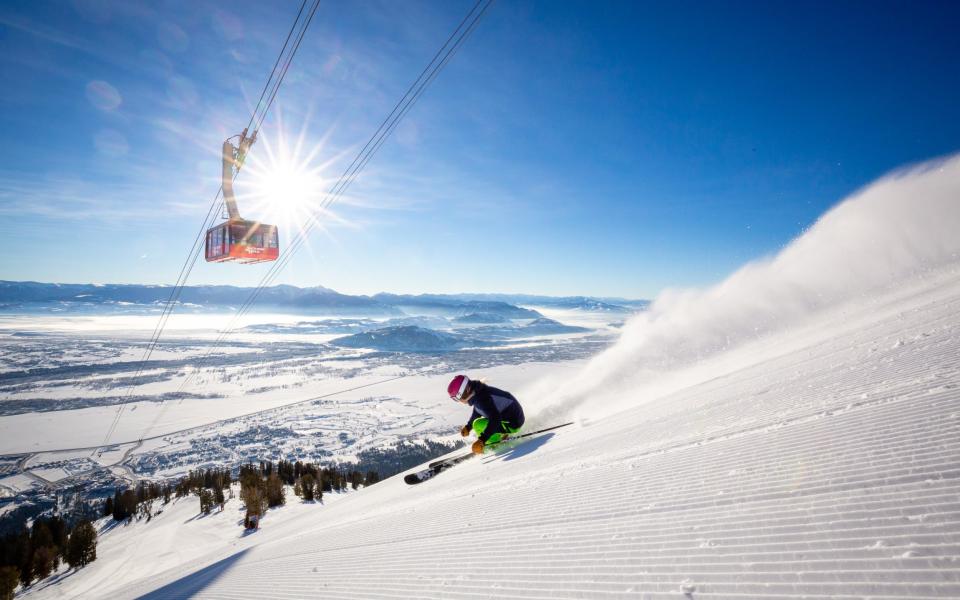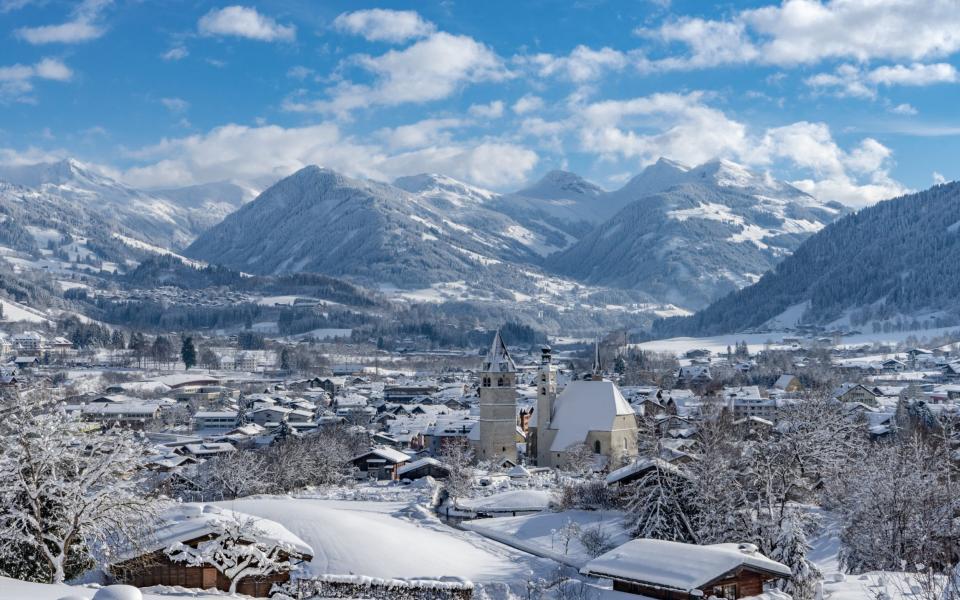Why you should book your next ski holiday now – and the mistakes to avoid

It may seem counter intuitive to be planning your next ski holiday before the current winter has shed its final snowflake. But savvy skiers and snowboarders can gain a lot from forward thinking, especially if they take learning from the highs and lows of the months just past.
The 2022/23 ski season has been bittersweet. It was the first winter in three years during which holidaymakers, resorts and operators haven’t had to hurdle the uncertainties of a global pandemic. But that doesn’t mean to say the season has been without its storms.
A domestic cost of living squeeze, an energy crisis across Europe and one of the leanest winters on record for snowfall in Europe have all threatened to throw skiers off tracks. “An unprecedented level of post-pandemic demand which coupled with increasing staffing issues and running costs put massive pressure on our in-resort teams,” says Cathy Rankin, sales director at Pierre & Vacances.
Already though, all eyes are on the next – with Britons’ passion for the slopes unwavering. “Don’t spend long looking or thinking, we are already exactly one quarter sold for next year,” says Andy Sturt, owner of VIP SKI. “We have never seen demand like it.”
There’s no denying ski holidays have been evolving over the past few years. New trends, in some cases driven by technology, others by Brexit, the pandemic or changing weather patterns, have emerged. This is your guide to skiing 2.0 – taking in the lessons learned from winter 2022/23 to help secure your next ski holiday in style.
1. Watch the weather
All eyes are on changing weather patterns and what it means for the future of skiing. This winter saw rain in Europe, followed by weeks of sunshine, before the arrival of late, season-saving storms. “The intermittent snow has been a challenge, it’s been a binary season with great conditions some weeks and very little snow others,” says James Gambrill, general manager of the Ski Club of Great Britain. Alan Ramsay, from the Schilthorn Cableway in Mürren, explains the wide-spread impact: “Although we had enough snow to keep most of the lifts open the shortage was felt even in Murren – the highest resort of the Bernese Oberland.”

“Altitude is everything,” says Sturt and never has it been so apparent that it pays the aim high, for resorts with slopes above 1,800m. When it comes to ensuring pistes open, “resorts have got much more creative,” explains snow reporter Patrick Thorne. “They pile it [snow] up when it’s cold, push it down the mountain when it’s too warm down low, even stockpile it under cover from the previous season. The resulting white ribbons on green and brown valley sides aren’t the most attractive, but we can keep skiing.” If low temperatures allow, advances in snowmaking are insurance-makers for both early- and late-season trips.
If in doubt, opt for a snow-sure haven like Japan’s northern island of Hokkaido or the resorts of Scandinavia. Or, as Sara Burdon from the tourist office of Morzine, one of the resorts devastated by rain over the New Year, says: “We have learned this winter that people like to come, and can have a good time, whatever the conditions.”
2. Don’t rush out to buy the latest kit
Are you buying a whole chalet to use one week a year? Likely not. The same principle can be applied to your ski kit. Instead, an increasing number of companies like Ecoski hire quality skiwear and even avalanche airbags and delivers items straight to your UK address, at a fraction of the cost to buy: an adult’s jacket and pants for £8 a day, a pre-schooler onesie for £3.58.
“If you don’t ski more than once or twice in a year, or have a growing family as we do, renting ski kit makes so much sense,” says Ecoski ambassador and ex-Winter Olympian Chemmy Alcott. “Afterwards, you send it back before even washing it. You don’t have the hassle of storing it to find the kids have outgrown it next year.”
3. Discover a new resort
Lightning-quick lifts are making less-frequented villages clever bases for some brilliant ski resorts. In the heart of the Maurienne Valley, it’s a 15-minute ride from Orelle to the Cime Caron (2,300m), a jumping-off point into Les 3 Vallées. This summer the new Matterhorn Alpine Crossing will link Zermatt with the more affordable Italian resort of Cervinia – via a 1.6km (about a mile) mast-free stretch skimming above Theodul Glacier in a scant four minutes – a game changer for next winter. For easy access and a quiet retreat from Verbier, consider a base in Le Châble: in 2021 a new station became the first train-gondola link in Switzerland, providing cable-car connection from dawn until midnight.

Or opt for an underrated corner completely devoid of crowds, advises Babsi Lapwood, chief operating officer of the Mountain Trade Network: “A top tip when booking a ski holiday is to be more flexible with destinations and look at alternative resorts, especially for families where prices are not affected by UK holidays.” Beyond the big names of the Alps it’s possible to uncover unique appeal, whether it be budget-friendly prices in Andorra, gourmet food in Norway or impressively reliable snow cover in Sweden. Such is the demand for off-the-beaten-track skiing, this winter Crystal Ski Holidays launched trips to Bosnia and Herzegovina in the Dinaric Alps, just south of the country’s capital city Sarajevo.
4. Book early – especially if you want a chalet or US trip
Rising prices have plagued the ski season this winter – with costs increasing across the board. If you’re certain that you want to ski in 2024, it has never been more important to lock your price as soon as possible, choosing a bonded operator that provides the security we’ve come to appreciate. “Prices and availability will continue to be squeezed, so [skiers] absolutely need to book early for key dates,” says Gambrill.
“Our advanced bookings for 2024 have already exceeded last winter’s record sales. We expect by May 31 to have secured 45 per cent of our total sales for next winters,” reveals Angus Kinloch, managing director at Skiline.
It is especially important if you’re passionate about when and where you want to travel – and imperative if you want to stay in a chalet. “Everyone says ‘book early’ but it’s only necessary if you care where or when you’re going... the biggest challenge this winter was how many fewer chalets are available compared to pre-Covid. The skiers have bounced back but available properties still lag behind demand,” says Richard Sinclair, managing director of SNO.
The same goes for trips to Canada and the USA. “For North America you must book now, as the early bird discounts on long-haul flights and lift passes end soon,” says Sinclair.

And don’t forget to look at the school calendar in advance. “The main UK holiday dates clash with Paris next season, and this hasn’t happened for a few years,” explains Kinloch. At Easter, when prices are typically lower than half term, demand is also rising. “Demand for Easter is already up 43 per cent compared to 2023; early booking for school holidays is an absolute must.”
5. Reconsider self-catering
There’s no need to stress over crowded restaurants – or cooking – when you check into the new style of self-catering apartments – sleek and, compared to the old shoeboxes, positively supersized. Spread out, relax, and tuck into a multi-course dinner from Huski, purveyors of freshly cooked food and ready to pop in the oven after a day in the French Alps. For modern DIY luxury, Consensio’s apartments come with housekeeping, on-call concierge, mid-week towel change, lift pass and ski-hire delivery, and Perrier Jouet on ice.
For total privacy, Ski France offers contactless stays: arrive to a stocked pantry, including wine, fresh pastries delivered daily, a three-course, easy-to-cook evening meal, pre-booked skis and lift passes and a phone number for extras.
6. Adjust your après attitude
The pleasures of après-ski needn’t always be at the bottom of a beer glass. The new-found love of self-care is contributing to the fast-growing trend of wellness tourism. How about a rejuvenating massage, a soul-soothing forest bath, or muscle-bending yoga session in the snow? Answering the call is the giant new Silvretta Spa in Ischgl, which opened this winter and features multiple pools, saunas and treatments, plus an ice-skating rink.
7. Try the fastest-growing style of skiing
Touring or randonée, skinning or uphill skiing: whatever the moniker, its popularity continues to skyrocket. Major resorts from Kitzbühel to Courchevel have built dedicated up-routes ideal for a scenic workout – with no need for a guide (it is always advised to have a qualified guide if venturing off-piste). Val Thorens opened its first dedicated ski touring zone this season, La Camille: a groomed ascent and two descents, one of which is ungroomed. When you’re ready for the backcountry try an introductory course to learn the basics in off-piste safety – Zermatters Ski School offers a five-hour guided taster experience for £229pp, including equipment hire.

8. Travel by rail instead of air
Swerve the airport commotion by taking the train, as more than 5,000 UK skiers did last season. Travelski, exclusive supplier of the direct Eurostar service from London to the Alps (Moûtiers and Bourg-Saint-Maurice), offers packages including accommodation and lift passes, outbound from London on Friday nights with wine and meals served in Premier and Business Premier – but be warned, standard seats don’t recline. Skiers are also transferred from the station to their accommodation (or as close as is possible under local access laws) on arrival. The return journey departs France a week later on Saturday. The service covers a multitude of French favourites, now including Courchevel, La Rosière and Val Thorens.
Rail passengers opting for an in-direct route to the Alps can now also benefit from special discounts in resorts – Montagne Verte, a non-profit association founded and funded by the community of Morzine, rewards those with proof of purchase of a train ticket with discounts on lift passes, accommodation and eating out.
9. Make it a multi-trip winter
Multi-resort lift passes are a staple of skiing across the pond and it’s a trend that’s picking up momentum on the Continent. There’s money to be saved flashing your Epic Pass around the world – in Europe alone, the Epic Pass gives lift access at five areas – five days at Verbier 4 Vallées in Switzerland, seven days at Les 3 Vallées in France, seven days at Skirama Dolomiti in Italy, three days at Ski Arlberg in Austria, plus 20 per cent discounts on food, lodging and lessons. This winter saw the addition of Andermatt, Switzerland, to the pass – where holders now have unlimited access to the slopes.
Epic’s rival, Ikon, has also branched further into Europe with the addition of Kitzbühel, Austria, to its offering. Pass holders can now access the slopes of Chamonix Mont Blanc in France, the Dolomiti Superski area in Italy, the Grandvalira in Andorra and Zermatt in Switzerland – each for seven days across the season.
Passes are already on sale for next season at the cheapest rate (the value lies in using the pass to its full ability) – as winter approaches prices and availability only increase, so it pays to secure yours early.

10. Plump for some private perks
The days of standing ice-lolly still in giant group lessons are dead. Make up for lost time with a bespoke private instructor. Maison Sport lets you review and choose from 1,200 independent instructors across some 350 European resorts. “Our site is unique in that you can really customise your experience, speaking directly with the instructor before you arrive,” says Nick Robinson, Maison Sport co-founder. This winter the platform also acquired Supreme Ski School, which currently operates across 18 resorts in France and Switzerland, providing Maison Sport customers with even greater choice.
Returning to school can also make your holiday more enjoyable. “Book a couple of hours with a ski instructor, even if you have been skiing for years – after almost 12 months break, the additional skill this will give you will make your holiday more enjoyable,” advises Mark Nathan from Chalets1066 in Les Gets.
Forgo the agonising wait for coach transfers, too. VIP SKI now smooths the process with your own driver and private transfer from Lyon, Grenoble, or Chambéry airports at a very reasonable supplement – from £12pp return in Les Portes du Soleil, and from £48pp return in the Tarentaise, if staying in one of its properties.


